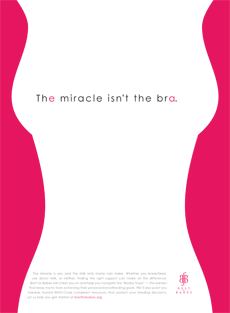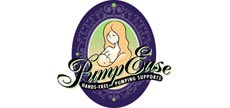First Lady Michelle Obama gave a speech to the Congressional Black Caucus yesterday, discussing the epidemic proportions of childhood obesity in the black community and what we can do to turn the tide. She has been actively promoting her “Let’s Move!” anti-obesity campaign for months now, and also recently spoke to the NAACP about these same issues. The statistics that Mrs. Obama
cites are downright frightening: 40% of African-American kids are overweight or obese,
nearly 50% will develop diabetes in their lifetime, 40% are never breastfed. While we’ve
slowly been making progress in regards to the breastfeeding rates, we still have a
long way to go when it comes to the health and quality of life of black children. In fact,
if we keep heading down this path, this generation will be the first to actually be less healthy than their parents.

How do we encourage families to make the necessary changes in order to improve the quality of their lives? As Mrs. Obama points out, these are not discrete issues with a simple solution. How do you encourage your kids to get outside and exercise when you live in a neighborhood where the streets aren’t safe? How do you tell parents who live in “food deserts” to give their kids more fruits and vegetables?
And how can parents who are struggling to put any food on the table at all worry about a child who is a “little thick,” when their local school system is failing and money is tight. It’s easy to put these issues on the back burner when there are other things to concern yourself with that seem more pressing. Of course obesity is not a problem just for African-Americans or even low-income people. I am completely middle class, live in a great neighborhood and don’t have much stress in my life besides the usual worries that come with being a mother. But still, I’ve struggled mightily with my weight my entire life. I don’t want to pass on any bad habits to my son, but even at age three I can see he has a sweet tooth. And in our household, where both parents are working outside of the home full-time, it’s tempting to order out or drive-thru after a long day of work, rather than take the time to put a healthy meal on the table.
In the black community we have also not only accepted that many of us will be overweight, but for the most part, we’ve embraced it. We’ve had to create our own images of what is beautiful and desirable and our idioms (“don’t nobody want a bone but a dog!”, “everybody like a little jelly on they biscuit!”) reflect that. I’ve often joked that I know it’s time to go on a diet when I start getting extra attention and whistles from black men. We’ve also come to accept that things like diabetes and heart disease are just a part of our lives. I mean, didn’t everyone’s Nana have “sugar”? Perhaps, but it doesn’t have to be that way. Particularly because we already know the ways to a healthier lifestyle, we just need to begin implementing them.
One of the many solutions to the obesity problem offered up by Mrs. Obama in her speech was to promote breastfeeding-particularly in the black community- which was greeted by a round of applause. As the recent CDC Breastfeeding Report Card revealed, we did not meet our Healthy People 2010 goals when it came to breastfeeding rates at 6 months or 1 year. In addition, we know based on a 2006 report that only 58% of black women ever breastfeed. Studies have shown again and again that breastfed babies are less likely to be obese as adults. We also now know that breastfeeding, even just for one month, helps prevent moms from developing Type II diabetes, you know, the kind you get from being overweight. In fact, every disease and condition that breastfeeding helps to prevent, from breast and ovarian cancer, to asthma and heart disease, is more prevalent and proves more deadly in the black community.
I love Mrs. Obama’s campaign because it tackles the obesity problem from every angle and requires all of us to get involved. She said in her speech yesterday, “But while government has a role to play here -– in raising awareness, and securing resources and pushing things forward -– when it comes down to it, no one here in Washington knows our communities like we do. The folks in Washington don’t have the kind of personal relationships or know-how that it takes to get things done on the ground. So I’m not just here today to talk to you about the problem. I am also here to enlist each and every one of you in our fight to find a solution. We need folks like all of you, who are leaders in your communities, we need you to start a conversation, to get involved with groups who are already making progress, and to bring folks to the table to attack this issue together. We need all stakeholders involved, and we need every resource at our disposal.”
Community leaders, doctors, teachers, non-profit organizations like La Leche League and Best for Babes, moms like you and me. What can we do to help make it easier for mothers to breastfeed? How can we provide support and encouragement? How do we ensure women get the correct information to ensure that they are able to make an educated decision when it comes to how they feed their babies?
What are you doing in your area to help our cause?


 @BestforBabes
@BestforBabes Best For Babes
Best For Babes







One timely thing that we can do is to support the Birthing Project (http://www.birthingprojectusa.org/), becoming “sister-friends” to at-risk pregnant women, and with that personal touch, care and concern, help these women have healthy pregnancies, and also start breastfeeding.
Kathy, I’d never heard of this project, this is great!!
Excellent article! My current obsession is getting people to tell doctors and nursing moms and pregnant moms that the “milk protein allergy” that so many doctors are “diagnosing” babies with these days is more likely to be a hindmilk-foremilk imbalance. This Milk Protein Allergy problem is so rampant in our area that either something is terribly amiss in our environment to be making so many new babies allergic to milk in moms’ diets, or, they just need to be educated about breastfeeding. Here’s a LLL article on what I’m talking about: http://www.llli.org/FAQ/foremilk.html
I’ve faxed that article to our pediatricians. Would you?
Also, I’m patiently awaiting the next step now that I’ve applied for La Leche League Leadership. I’m in Western Nebraska, the rural end of a state where there is no legal protection for breastfeeding. There is no time to waste waiting for a LLL chapter to get started.
Thank you for this great commentary, Elita. I work as an IBCLC in a nonprofit breastfeeding center in Lincoln, Nebraska. We provide services to all women, regardless of their ability to pay. That is one thing we’re doing in THIS community to help women of color. We have a couple of grants which are specifically targeted to mothers who go to low income health clinics. We call the moms as soon as we get a referral saying they’ve given birth. We make home visits if transportation is an issue for women covered under these grants. However, it is hard to get grants to provide lactation care. It is a bit easier if we can tie it in with obesity and get people to see the connection.
Interesting, I remember a few years ago looking into grant money specifically for breastfeeding programs and there seemed to be a ton of money. Is there less grant money now or is it more competitive? Or maybe what looked like a huge amount to me, someone on the outside, is really paltry when it comes to sponsoring a program like this.
Thank you for all you do!
It’s too bad there is not a grant for those moms as “prenatal” care. It’s shown that women who know about breastfeeding before giving birth are more likely to breastfeed. Maybe that would be an avenue to try?
The Pikes Peak Regional Doula Association, Sept. 2010 is begining a region wide breastfeeding initiative including a page on our website, http://www.PPRDA.com, listing all breastfeeding friendly buisnesses in the region and offering the Universal Breastfeeding symbol clings for them to display. Also offering cards to breastfeeding mothers with the Colorado state law, stating a mother may breastfeed anywhere she is allowed to be!
Breasfeeding is so important, just yesterday I heard Dr Christiane Northrup say (I paraphrase) that Breastfeeding through the first year lowers the risk of all causes of death by 20%!
Breastfeeding ROCKS!!!
A great problem that requires great and organized efforts, I hope my country, Argentina, realizes too that we need to breastfed more and to improve foods we offer to our kids, I am pediatrician and I agree with you!